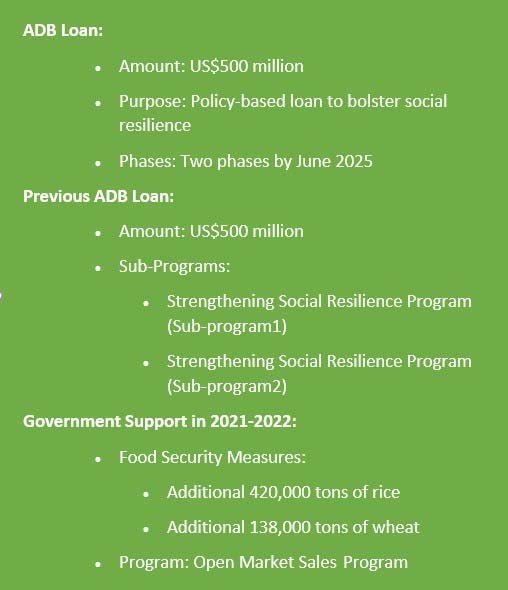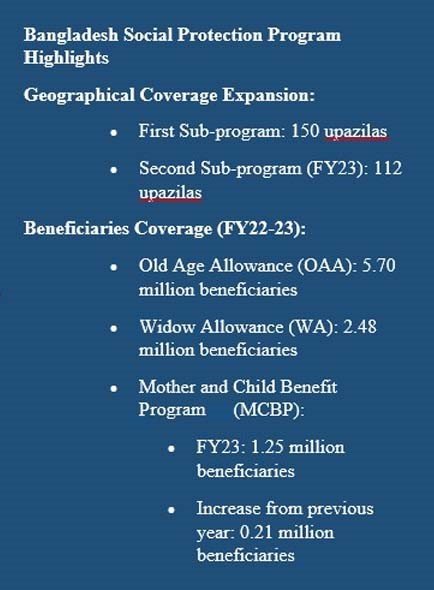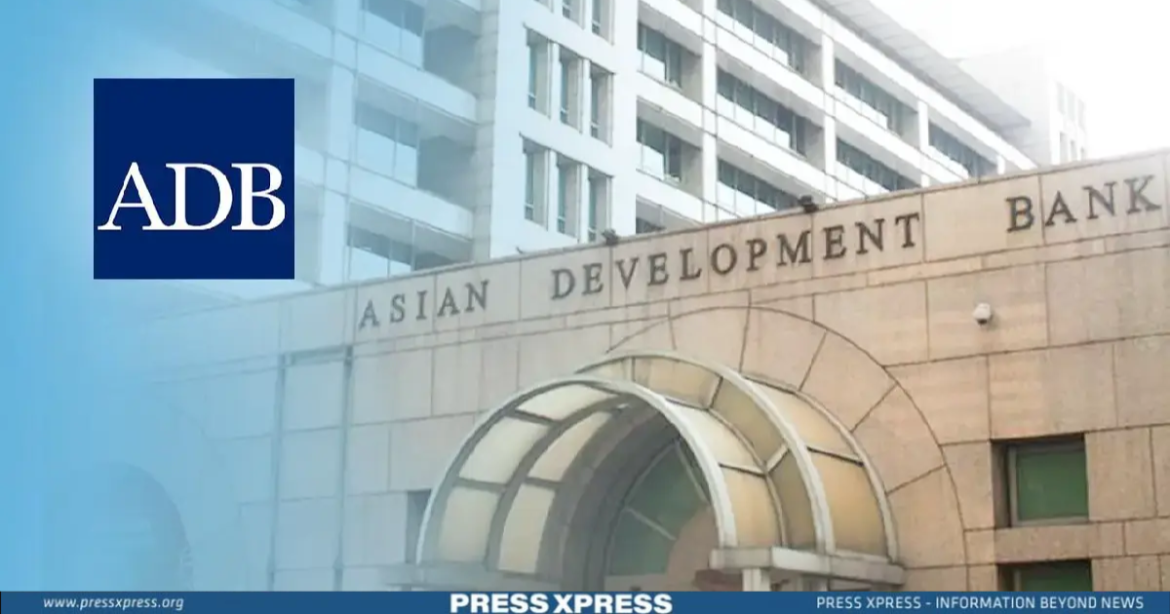Key Highlights:
- The Asian Development Bank (ADB) is poised to extend a US$500 million policy-based loan in two phases by June 2025
- The first loan package’s initial sub-program covered eligible beneficiaries in 150 upazilas, while the second sub-program, implemented in the last fiscal year, extended coverage to an additional 112 upazilas
- The number of beneficiaries under the Mother and Child Benefit Program (MCBP) rose by 0.21 million to 1.25 million in FY23 compared to the previous year
The Asian Development Bank (ADB) is poised to extend a US$500 million policy-based loan in two phases by June 2025 to bolster the social resilience of Bangladesh’s populace, according to officials. Officials have indicated that a fact-finding mission from the Manila-based ADB will visit Dhaka next week, led by Hiroko Uchimura-Shiroishi, the principal social sector specialist of the bank.
During the mission, discussions will revolve around finalizing policy actions, compliance documents, performance indicators, loan terms, implementation arrangements, as well as the scope and activities of technical assistance, and the timeline for program processing.
You can also read: BRICS Boom: Millionaire Surge Forecasted in Next Decade!
Previously, 2 sub-programs-Strengthening Social Resilience Program (Sub-program1) and Strengthening Social Resilience Program (Sub-program2) amounting to US$500 million were allocated and now, this is the 2nd occasion that the ADB is extending a loan to fortify social resilience in Bangladesh, with a focus on enhancing social safety policies.
M A Razzaque, a technical assistance expert of the ADB, stated that the second phase of the program will commence with an initial release of $250 million by June this year, with the potential for an additional $250 million by June 2025.
Plans also include incorporating individuals impacted by climate change effects as beneficiaries to enhance overall resilience, he added.
Additionally, in the fiscal year 2021-2022, the government of Bangladesh supported food security measures by increasing the allocation of subsidized grains.
They provided an additional 420,000 tons of rice and 138,000 tons of wheat under the open market sales program to strengthen social resilience in Bangladesh.

A Look at ADB’s Previous Contributions
The first loan package’s initial sub-program covered eligible beneficiaries in 150 upazilas, while the second sub-program, implemented in the last fiscal year, extended coverage to an additional 112 upazilas.
According to the completion report of the first phase, both the Old Age Allowance (OAA) and Widow Allowance (WA) achieved full coverage of eligible beneficiaries, totaling 5.70 million under OAA and 2.48 million under WA in the fiscal year 2022-2023 in 262 upazilas.
Additionally, the number of beneficiaries under the Mother and Child Benefit Program (MCBP) rose by 0.21 million to 1.25 million in FY23 compared to the previous year.
The programs also contributed to enhancing a contributory protection scheme, with a specific focus on an employment injury scheme.
This scheme aimed to extend protection to a broader spectrum of the population while concurrently bolstering government funding for social protection initiatives.
Reforms implemented in Bangladesh facilitated the integration of at least 80% of social protection programs with cash-based benefits into a standardized and seamlessly integrated management system, linked to the Government-to-Person (G2P) platform by June 2023.
A significant portion, approximately 60%, of cash-based social protection benefits were directed toward disadvantaged women, marking a concerted effort to address gender disparities.

Furthermore, these reforms led to a reduction in the fragmentation of social protection programs across three ministries, streamlining efforts for greater efficiency and impact.
The expansion of active mobile financial services accounts to 5% played a pivotal role in enhancing financial inclusion and accessibility to social protection services. Additionally, the establishment of at least 50 mobile clinics in 10 city corporations further augmented healthcare access, particularly in underserved communities.
Looking ahead, the Asian Development Bank (ADB) has outlined a robust pipeline of development projects for Bangladesh. As of 2024, these projects encompass 40 firm projects valued at $7.9 billion and an additional 40 standby projects totaling $8.5 billion. Additionally, the ADB’s technical assistance program encompasses 45 projects with a cumulative investment of approximately $40 million, signaling a sustained commitment to supporting Bangladesh’s development priorities.
Renewed Commitment to Social Protection
The COVID-19 pandemic has significantly affected the socioeconomic situation of Bangladesh. The growth rate of its gross domestic product (GDP) decreased by 3% in 2020, from a pre-COVID-19 estimate of 8.2%. Among those hit hardest by the pandemic are poor people who faced further impoverishment, and many vulnerable people who fell back into poverty.
Continued social protection support is critical to cushioning the effects of the pandemic. The government intends to leverage the COVID-19 pandemic as an opportunity to strengthen its social protection programs as an essential means of building the resilience of the poor; supporting inclusive recovery; and working toward faster, sustainable, and resilient development.
The funds provided by ADB will be channeled as budgetary support to the government, with a focus on enhancing social protection measures for the populace. The upcoming program will prioritize augmenting allowances for the elderly and widows, alongside strengthening institutional capacity and expanding social protection through financial inclusion.
A finance ministry official highlighted that the new phase will prioritize enhancing social protection initiatives led by the Ministry of Social Welfare, while also consolidating support across various arrangements and strengthening governance in social protection under the ADB-funded program.
With the ADB’s renewed commitment to social protection in Bangladesh, there’s a clear trajectory towards invigorating resilience and ensuring inclusive recovery, especially in the face of challenges like the COVID-19 pandemic and climate change impacts. As plans unfold for the second phase of the program, set to commence with substantial financial backing, the focus on boosting social safety nets, enhancing institutional capacity, and expanding financial inclusion reflects a steadfast dedication to uplifting the most vulnerable segments of society.


